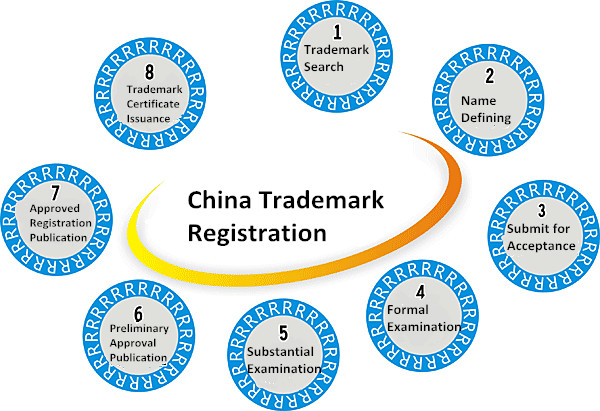China Trademark Service
Hotline: 86-755-82143422 Email: anitayao@citilinkia.com
In the case of Finder Industries (M) Sdn. Bhd. V M B Products (M) Sdn. Bhd., the High Court of Malaya at Melaka, Malaysia dismissed the Plaintiff’s claims for infringement and passing off.
Finder Industries (M) Sdn Bhd (hereinafter referred to as “the Plaintiff”) is a company incorporated in Malaysia and is a registered proprietor of the trade mark “O’Lagenda” claiming coffee, tea and cocoa in Class 30.

The Plaintiff engaged with manufacturing, producing and distributing of instant beverages such as coffee, tea and cocoa in Malaysia and also exported the same to other countries in the region bearing the trade mark O’Lagenda on the packages of the products.
The Plaintiff is also a GSI system user whereby the Plaintiff has been authorized by Malaysian GSI 955 Organization Member to use any bar codes worldwide started with the number 955-541270-000-C to 955-541270-999-C.
M B Products (M) Sdn. Bhd. (hereinafter referred to as “the Defendant”) is a company incorporated in Malaysia which operates in beverages business for instant beverages such as coffee, tea and cocoa. Defendant is also engaged in packaging of their products. Defendant exported the products to Guangzhou Finder Trading Co. (hereinafter referred to as “the Chinese company”) who is the owner of a registered trade mark O’Lagenda in China. Defendant claimed that there is no product has been sold in Malaysian market.
In early April 2002, the Plaintiff discovered that the Defendant had been manufacturing, distributing, selling and exporting the beverages bearing the trade mark O’Lagenda on the packages and also using the same bar codes as Plaintiff.
As the Plaintiff has never given the permission or approval for the Defendant or the Chinese company to use the trade mark O’Lagenda as well as the bar codes in Malaysia, the Plaintiff sued the Defendant for trade mark infringement under Section 38(1)(a) Trade Marks Act 1976.
The Defendant however denied the Plaintiff’s claims and the Defendant also contended that there is no evidence that shows the Defendant’s products have been sold in Malaysia.
To establish an action for trademark infringement based on Section 38 of the Act, the Plaintiff would need to establish the following ingredients:
The Defendant used a mark identical with or nearly resembling the registered trade mark as is likely to deceive or cause confusion;
The Defendant is not authorized or licensed to use the registered trade mark;
The Defendant is using the offending trade mark in the course of trade;
The Defendant is using the offending trade mark in relation to goods in respect of which the trade mark is registered;
The Defendant uses the mark in such a manner as to render the use of the mark likely to be taken as being used as a trade mark.
The Defendant further argued that the Plaintiff has failed to prove all the above mentioned ingredients especially in proving the following:-
The Defendant used a mark identical with or nearly resembling the registered trade mark as is likely to deceive or cause confusion; and
The Defendant is using the offending trade mark in the course of trade.
The High Court held that having reviewed the affidavits filed by the Plaintiff and the Defendant, the Court found that Plaintiff failed to prove the ingredients under Section 38 and the Court decided in favor of the Defendant, ruling that there was no infringement of the Plaintiff’s trade mark, as well as passing off of its get-up and packaging. The Court pointed out that the Defendant is only engaged in the packaging of all the beverages coffee products and exported the same to the Chinese company.
The Court further held that the Plaintiff has also failed to prove the used of the trade mark “in the course of trade”. The Court indicated that under Section 71(1) Trade Marks Act 1976, the application in Malaysia of a trade mark to goods to be exported from Malaysia and any other act done in Malaysia in relation to the goods which if done in relation to goods to be sold or otherwise traded in in Malaysia would constitute use of a trade mark in Malaysia shall for the purpose of this Act be deemed to constitute use of the trade mark in relation to those goods.
However, based on Section 71(1), the Defendant argued that Section 71(1) is only stated with regards to the “use of trade mark” and not “use of the trade mark in the course of trade”. As such a person who is using the trade mark with the intention to export the products in other countries is not necessary to use the trade mark “in the course of trade” in Malaysia. The Court had taken a view that the Defendant is only using the Plaintiff’s trade mark in Malaysia with the intention to export the products to the Chinese company and therefore the Defendant is not using the Plaintiff’s mark in the course of trade.
The Court went on to consider the claim for passing-off and concluded that there is no passing-off and the marks are not to be likely to cause deception or confusion to a consumer in Malaysia. The Court held that the Plaintiff had not acquired substantial “goodwill” and reputation in its business and trade in the beverages bearing the O’Lagenda trade mark, get-up and packaging in China. The Court also noted that the Plaintiff has never used the trade mark in China and as such there is no damage to the Plaintiff’s reputation and goodwill.
The Court dismissed the Plaintiff’s claims with costs.
Contact us
ATAHK provides International Trademark Registration (Madrid Trademark, Malaysia, Hong Kong, China, Taiwan, Korea, France, Japan, Germany, USA, Indonesia, Thailand, Brunei and 200 more countries). We also provide Intellectual Property rights (Patent and Copy right) and Brand Operating Service. Contact us at 603-21418908 for FREE consultation.